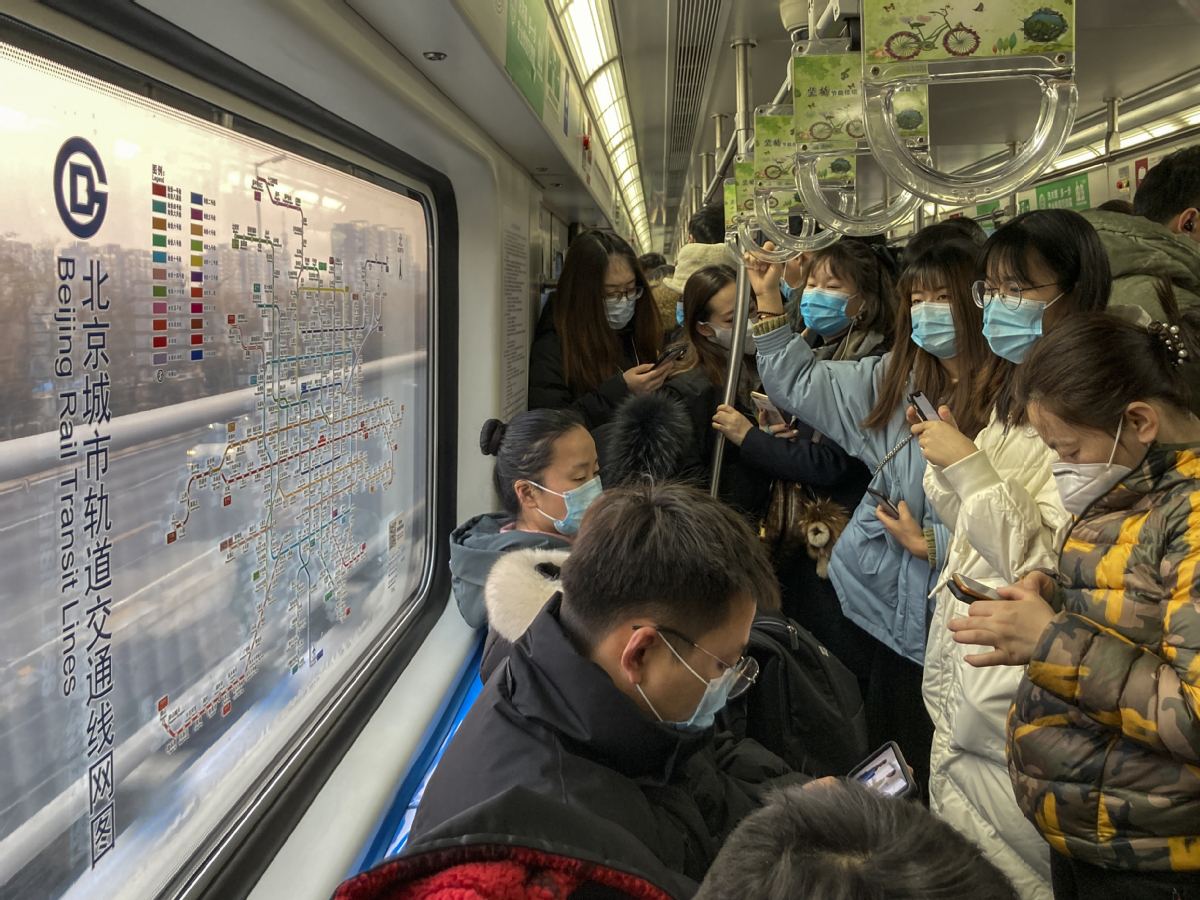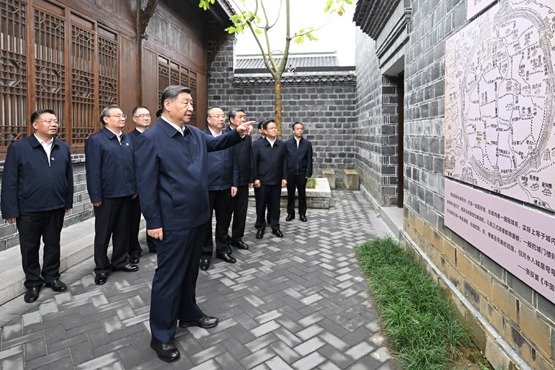Commuters forced to go the distance


General picture
Beijing has four major functions as China's capital, serving as the nation's political, cultural, international communications, and scientific and technology center. It has 16 districts, with Dongcheng and Xicheng as the core area.
The core area and neighboring districts such as Chaoyang and Haidian play major and essential roles for the city.
The capital's key resources, including schools, hospitals, major infrastructure and transportation services, lie within the Fifth Ring Road, along with most workplaces. These factors have led to high real estate prices in downtown Beijing.
According to the Hurun Research 2021 list of self-made billionaires under age 40, which has just been released, four of the top six are from China.
Zhang Yiming, the 38-year-old founder of Byte-Dance Technology, the parent company of short-video platform Douyin, which is known as TikTok outside China, ranked second on the list. His company was founded and is headquartered in Beijing.
Encouraged by such success and attracted by job opportunities, millions of people are willing to endure long-distance commuting to work in Beijing, including those living in the city but far from the center.
Books editor Zhang Xiaoxiao, who is in her 30s and lives in Tongzhou district in eastern Beijing and works in Chaoyang, spends a total of four hours commuting a day. She has become used to the journey and plans to continue making it for the foreseeable future.
"At least there is a subway line linking the downtown area and Tongzhou. I can read books or watch videos during the time I spend on the subway," she said.
According to a report released in December, more than 10 million people in 36 major Chinese cities spend more than one hour on single-trip commuting, accounting for 13 percent of the commuters in these cities. The report was published by the China Academy of Urban Planning and Design.
In Beijing, Shanghai, Guangzhou and Shenzhen, Guangdong province, up to 18 percent of commuters spend more than one hour making a single trip. In Beijing, the proportion is as high as 26 percent.
The report said the average commuting distance in these four cities is 9.3 km, with Beijing ranking top with 11.1 km.
The average commuting time in the capital is 47 minutes-the only city in China where commuters spend an average of more than 45 minutes getting to or from work.
The report said many cities in the world, including Shanghai and Nanjing, capital of Jiangsu province, aim for 90 percent of their commuters to spend less than 45 minutes traveling, which is considered a benchmark for a prosperous, fair and sustainable city.
However, in the 36 key cities in China, only 76 percent of commuters spend less than 45 minutes traveling.
"Long-distance commuting has become a major factor limiting a city's high-quality development and reducing residents' happiness," the report said.
"Affected by job opportunities, high real estate prices, family considerations and education, it's difficult for residents to choose living and work locations that are a short distance (from each other). Deepening home-work separation is a reflection of the unbalanced supply of residences and jobs."
- Xinjiang students get up close look at drone technology
- Central govt kicks off new batch of third round of environmental inspections
- Altay, Xinjiang Uygur autonomous region
- The Balikun Grasslands
- Embroidery of the Uygur ethnic group
- Xinjiang Uygur autonomous region: Great Wall beacons remain standing along the ancient Silk Road




































